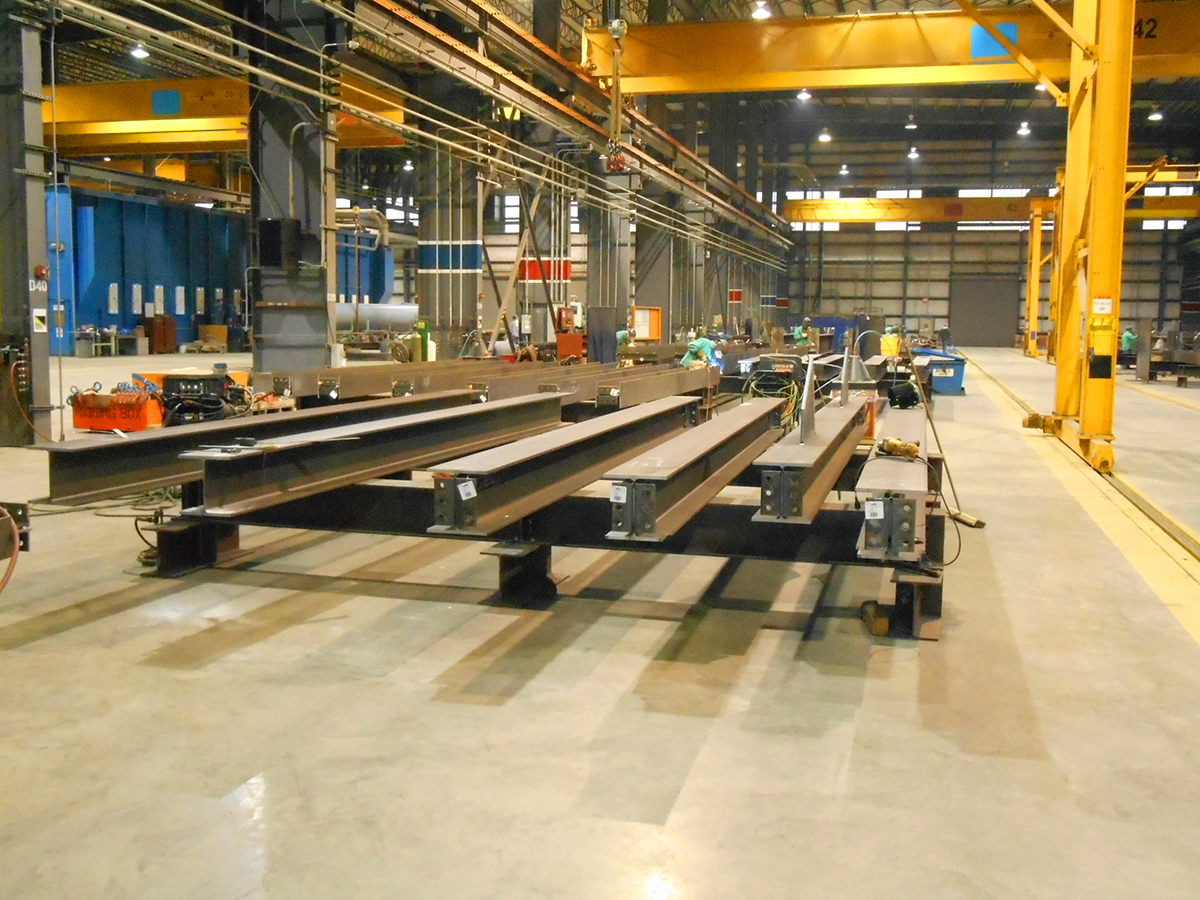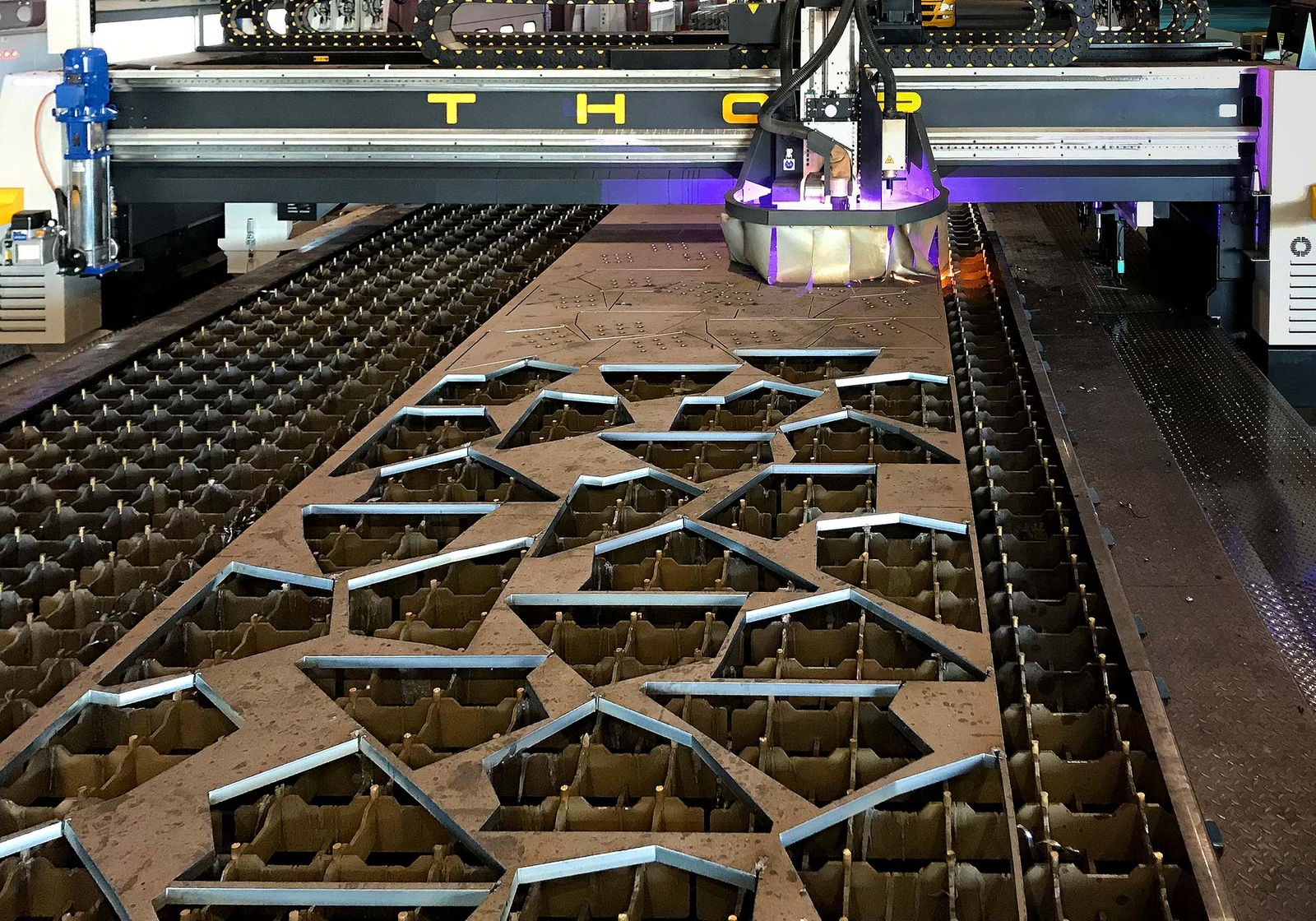Comprehensive Steel Fixing Providers for Construction Projects
Wiki Article
The Ultimate Manual on Custom Steel Manufacture Solutions for Structural Projects
In the world of architectural tasks, the value of custom-made steel fabrication options can not be overstated. From the fundamental understanding of steel manufacture basics to the detailed process of selecting one of the most suitable materials, every action in this trip plays a crucial role in the best success of a task. As we navigate with the complexities of style factors to consider, manufacture procedures, and high quality control actions, an extensive handbook offers as a leading light for professionals seeking excellence in steel manufacture services. Remain tuned to discover the understandings that can transform the way structural projects are approached and carried out.Comprehending Customized Steel Manufacture Fundamentals
Exploring the fundamentals of personalized steel construction offers understanding into the intricate procedure of transforming raw steel into tailored architectural parts. Personalized steel construction is a customized manufacturing technique that includes cutting, shaping, and setting up steel products to develop distinct frameworks according to specific project requirements. Understanding the fundamentals of custom steel construction is important for guaranteeing the successful execution of architectural tasks.The process commonly starts with the evaluation of project specifications and design needs. This preliminary stage involves comprehensive planning and cooperation in between engineers, fabricators, and developers to figure out the most suitable strategy for producing the steel elements. Precision is essential during the manufacture process, as also small discrepancies can influence the structural stability of the end product.
Various methods, such as reducing, welding, and shaping, are utilized to change raw steel into the desired architectural aspects. Competent makers utilize advanced equipment and tools to make certain accuracy and uniformity throughout the fabrication process. Quality control procedures are applied to confirm the honesty of the produced parts before they are put together on-site, guaranteeing conformity with market standards and task specifications.
Picking the Right Steel Materials

Primarily, the kind of structural task and its certain needs play a crucial role in identifying one of the most appropriate steel materials. Aspects such as the load-bearing ability, ecological conditions, and preferred life-span of the structure will dictate the quality and kind of steel that need to be used.
Furthermore, the physical homes of the steel, consisting of weldability, stamina, and ductility, should line up with the job's requirements to guarantee optimum performance and sturdiness (steel fixing). Additionally, factors to consider such as deterioration resistance, cost-effectiveness, and schedule of the steel products must likewise be taken right into account during the choice process
Layout Considerations for Structural Projects
Structural tasks demand thorough attention to design factors to consider to make sure both functionality and safety and security are prioritized throughout the building process. When it involves designing architectural jobs, several key elements need to be taken into consideration to assure the success of the venture. The structural honesty of the structure must be a top priority. This includes analyzing tons, anxieties, and ecological aspects to determine one of the most appropriate design that can stand up to different conditions gradually. Furthermore, factors to consider for the performance of the framework play an essential duty in the style process. Recognizing the function of the building and how it will be made use of helps in creating a design that makes the most of effectiveness and usability. Furthermore, incorporating aspects visit site that boost the aesthetic appeals of the framework can even more boost the overall design. Balancing safety and security, functionality, and aesthetic appeal is important in developing effective architectural projects that satisfy both visual and useful demands. By carefully taking into consideration these facets throughout the style stage, architects and engineers can make certain the structural job's success from conception to conclusion.Simplifying Manufacture Procedures for Performance

Furthermore, implementing lean production principles can significantly boost effectiveness in steel fabrication. By minimizing waste, maximizing workflow, and boosting interaction in between different groups associated with the manufacture process, projects can be completed much more quickly and with better standards.
Moreover, establishing a well-organized manufacturing routine and operations can aid in prioritizing jobs, assigning resources effectively, and conference job target dates without delay. By having a clear strategy in position and regularly keeping an eye on development, any kind of possible bottlenecks go to these guys or hold-ups can be determined and resolved immediately, guaranteeing smooth and effective manufacture procedures for structural projects.
Quality Control and Project Management in Steel Fabrication
To make sure the successful implementation of steel fabrication tasks, thorough high quality control procedures and reliable job management practices are essential elements in preserving precision and meeting customer assumptions. Quality assurance in steel manufacture involves extensive examinations at numerous stages of the construction process to verify compliance with project specs and sector requirements. This includes product testing, dimensional checks, and weld assessments to guarantee architectural honesty and security.Project management plays a critical duty in working with the numerous facets of steel construction tasks, such as organizing, resource allowance, and communication amongst employee. A distinct important source task plan with clear goals, landmarks, and timelines helps to keep track of development and deal with any kind of prospective issues proactively. Efficient interaction between all stakeholders, including customers, producers, service providers, and designers, is vital for guaranteeing that the project progresses smoothly and meets the wanted top quality standards.
Verdict
In conclusion, customized steel manufacture plays a crucial role in structural projects by providing customized options utilizing the right products and design considerations. Efficiency in fabrication procedures, quality control, and efficient job administration are crucial for effective end results. By comprehending the basics of customized steel construction and carrying out structured procedures, job groups can supply durable and high-grade structures that satisfy the particular requirements of their clients.Custom steel manufacture is a specific production method that involves cutting, shaping, and putting together steel products to produce unique frameworks according to specific job requirements.To make certain the successful implementation of steel fabrication tasks, careful high quality control procedures and reliable project administration techniques are necessary components in keeping precision and meeting client expectations. Quality control in steel fabrication includes extensive evaluations at numerous stages of the manufacture process to confirm compliance with task specs and sector criteria (steel fabrication melbourne).Project monitoring plays a crucial role in working with the different facets of steel manufacture jobs, such as scheduling, resource allotment, and communication among team participants.In conclusion, personalized steel fabrication plays an important duty in structural jobs by giving tailored options using the best products and design considerations
Report this wiki page